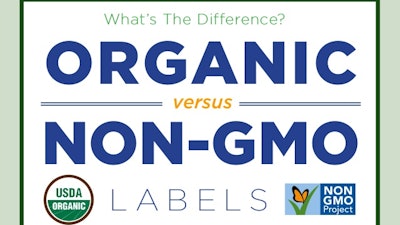
As a food manufacturer, one of your most important responsibilities is being open and honest with consumers. The people who buy your products want to have confidence that they know exactly what went into them and how they were made. In recent years, this candor has only become more vital for the industry. That’s because an increasing number of shoppers today choose what they put in their carts based on whether or not those products were made using organic or non-genetically modified (GMO) ingredients.
Often, this is as much an ethical choice for these shoppers as it is a health-related decision. This means you need to understand the difference between these two certifications to provide customers with the most accurate information.
Although there is some overlap between foods that are certified organic by the USDA and those that are verified as containing no GMO elements by the Non-GMO Project, there are some distinct and crucial differences. For example, foods bearing the Non-GMO Project label but not the USDA Organic logo may have been subjected to chemical pesticides or fertilizers.
Likewise, products that are certified organic but do not bear the Non-GMO Project verification may not have been tested for GMO residue at multiple levels of the production process. In short, consumers should not assume that one equals the other.
Untangling all of the various qualifiers that go into these labels is a big part of your responsibility to customers. To learn more, take a close look at the guide below.

Chris Bekermeier is Vice President of Marketing at PacMoore. PacMoore is a food contract manufacturer that offers food processing and packaging services. Bekermeier received his B.S. in business management from Eastern Illinois University and his M.B.A. from the University of Chicago.























